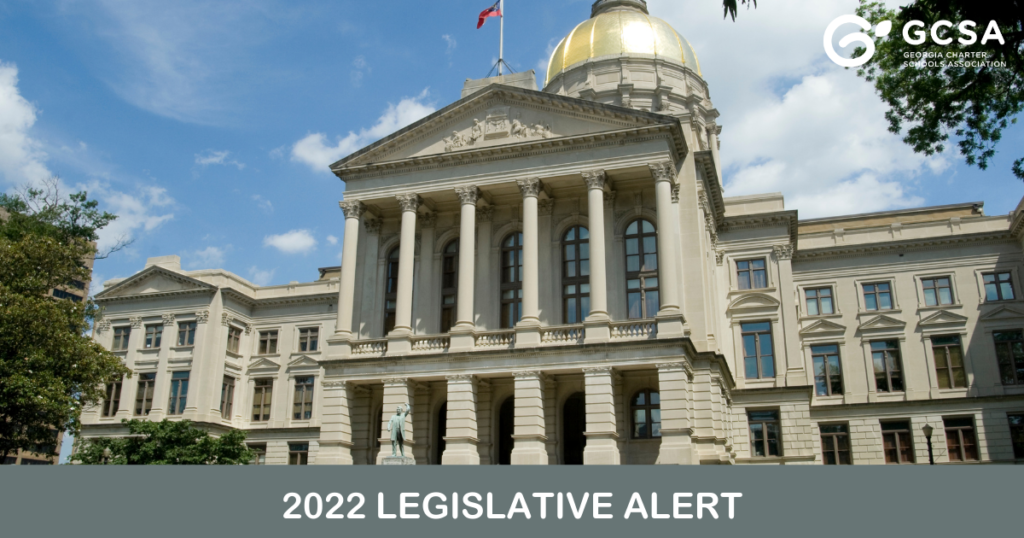 Thanks to GCSA’s successful advocacy efforts, Georgia’s public charter schools will receive a significant increase in state facilities funding in FY23. State lawmakers delivered another victory for Georgia’s public charter schools with the approval of House Bill 1215, a key equity and access bill for charters championed by GCSA.
Thanks to GCSA’s successful advocacy efforts, Georgia’s public charter schools will receive a significant increase in state facilities funding in FY23. State lawmakers delivered another victory for Georgia’s public charter schools with the approval of House Bill 1215, a key equity and access bill for charters championed by GCSA.
Georgia’s Public Charter Schools Receive a 50 Percent Increase in Facilities Funding
Georgia charter schools will see a significant increase in facilities funding in FY23. The state’s budget includes the addition of $3 million new dollars to the Charter School Facility Grant fund. This brings the grant fund total up to $7.5 million—which is enough to provide all eligible charter schools a grant award of $75,000 per year to help offset facility costs. This represents a $25,000, or 50 percent increase, over last year’s per school grant awards.
“We’re pleased state lawmakers approved a vital increase in state facilities funding, said Tony Roberts, President and CEO of the Georgia Charter Schools Association. “The additional funding will help charters offset the significant facilities costs they pay out of their operating budgets due to a lack of access to affordable capital.”
The Georgia Charter Schools Association wants to thank Rep. Brad Thomas, HB 1215 sponsor; Sen. John Albers, Senate sponsor; House Speaker Pro Tempore Jan Jones; Lt. Gov. Geoff Duncan and House Speaker David Ralston for their leadership and continued efforts to provide Georgia’s public school students with high-quality and equitable educational opportunities. We’re also grateful to the bipartisan group of lawmakers who passed this key bill for public charter schools.
House Bill 1215 Gains Approval
House Bill 1215 was sponsored by state Rep. Brad Thomas. The bill passed the Georgia Senate 45-9 and the Georgia House 113-45. The charter legislation does four things:
1) it refines the state’s charter school definition to better distinguish charter schools from charter systems, College and Career Academies and other school choice models in the state;
2) it prevents local districts from prohibiting students from transferring to charter schools during the school year;
3) it closes a loophole in the funding calculation for local charter schools by basing funding on collected (versus budgeted) local revenue.
4) it removes the performance audit requirement for virtual state charter schools.
“These crucial changes to state law will provide greater funding equity for locally-approved public charter schools and give Georgia students more opportunities to access a public school that best fits their needs,” said Roberts.
GCSA is thankful for the leadership provided by House Appropriations Subcommittee Education Chairman Todd Jones and House Appropriations Committee Chairman Terry England. We appreciate their unwavering support for the more than 60,000 students enrolled in a Georgia public charter school.
HB 1215 and the FY23 budget now head to Gov. Brian Kemp’s desk for approval. Read more about the facilities funding increase and HB 1215 in the following press release.